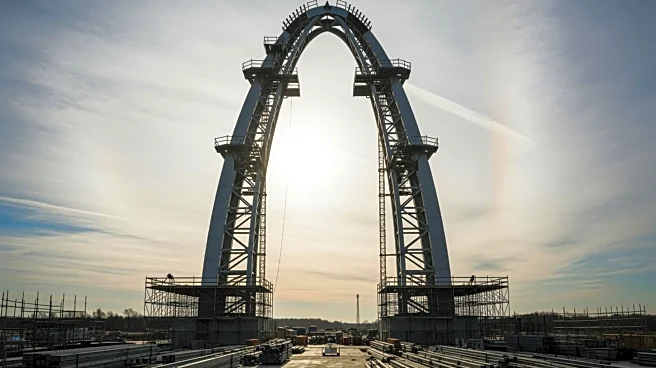What's Happening?
The Icelandic Road Administration has been authorized to proceed with negotiations with Norwegian contractor Leonhard Nilsen og Sønner for the construction of two key bridges in Iceland's southern Westfjords. This development follows the lifting of a legal appeal that had temporarily blocked the project. Despite being the third lowest bidder, Leonhard Nilsen og Sønner's offer was accepted, which was 14% over the estimated cost at ISK 1.85 billion. The decision to bypass the two lowest bidders led to a formal complaint, but the Public Procurement Complaints Commission has now removed the suspension, although the full ruling has not been disclosed. The project includes building a 58-meter bridge across Djúpafjörður at Grónes and a 130-meter bridge over Gufufjörður, aimed at improving safety and reducing travel times in the region.
Why It's Important?
The construction of these bridges is significant for the Westfjords region as it promises to enhance transportation infrastructure, thereby improving safety and reducing travel times. This development is crucial for local communities and businesses, potentially boosting economic activities by facilitating easier access and connectivity. The decision to proceed with a higher bid highlights the importance placed on quality and reliability over cost, which could set a precedent for future infrastructure projects in Iceland. The project, once completed, is expected to cut around 22 kilometers and 30 minutes from journeys in the area, which could have substantial benefits for tourism and local commerce.
What's Next?
The project, originally scheduled for completion by September 2026, may face delays due to the previous legal hold-up. The Icelandic Road Administration will continue negotiations with the contractor to finalize the terms and commence construction. Additionally, a third phase involving a 250-meter bridge over Djúpafjörður is expected to go to tender later this year. Stakeholders, including local government and businesses, will be closely monitoring the progress and any further legal or logistical challenges that may arise.
Beyond the Headlines
The decision to accept a higher bid raises questions about procurement practices and the balance between cost and quality in public infrastructure projects. This case may influence future decisions in Iceland and potentially other countries, emphasizing the importance of selecting contractors based on reliability and expertise rather than solely on price. The long-term impact on the region's development and connectivity could also lead to increased investment and interest in the Westfjords, promoting sustainable growth and community development.









